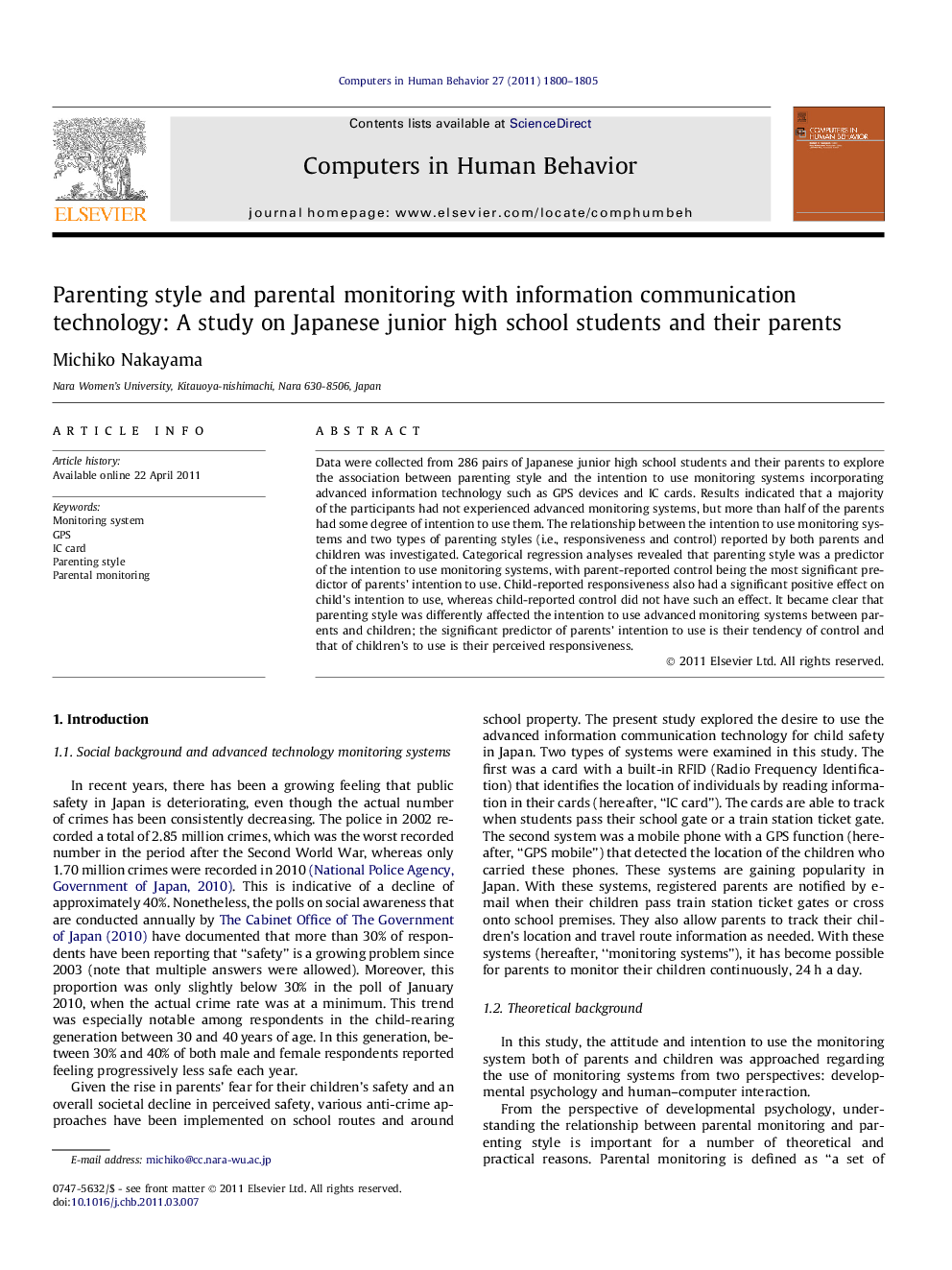| Article ID | Journal | Published Year | Pages | File Type |
|---|---|---|---|---|
| 350988 | Computers in Human Behavior | 2011 | 6 Pages |
Data were collected from 286 pairs of Japanese junior high school students and their parents to explore the association between parenting style and the intention to use monitoring systems incorporating advanced information technology such as GPS devices and IC cards. Results indicated that a majority of the participants had not experienced advanced monitoring systems, but more than half of the parents had some degree of intention to use them. The relationship between the intention to use monitoring systems and two types of parenting styles (i.e., responsiveness and control) reported by both parents and children was investigated. Categorical regression analyses revealed that parenting style was a predictor of the intention to use monitoring systems, with parent-reported control being the most significant predictor of parents’ intention to use. Child-reported responsiveness also had a significant positive effect on child’s intention to use, whereas child-reported control did not have such an effect. It became clear that parenting style was differently affected the intention to use advanced monitoring systems between parents and children; the significant predictor of parents’ intention to use is their tendency of control and that of children’s to use is their perceived responsiveness.
► Parenting style and parental monitoring was examined. ► Monitoring system with GPS device or IC card was focused on. ► Japanese junior high school students and their parents were participated. ► Control was the predictor of parents’ intention to use monitoring system. ► The predictor of children’s intention to use was their perceived responsiveness.
